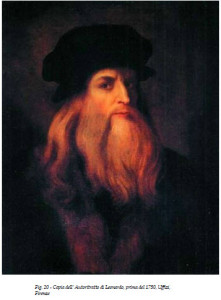I am a great believer in the value of education, but I don’t think that has to be a formal education. For a variety of reasons, a college degree is not for everyone. But that doesn’t mean that you can’t be a lifelong learner. This type of learning is based not on the need or desire for a degree or certification, but on endless curiosity.

Anonymous portrait (once claimed to be a self-portrait) of Leonardo da Vinci, c. 1600. Uffizi, Florence. Photo by Nico Barbatelli via Wikimedia Commons
An autodidact is someone who is self-taught in a subject for which they have had no formal education. One of the most famous autodidacts in history is Leonardo Da Vinci (1452-1519). Painter, sculptor, architect, engineer, etc. One look at his centuries old notebooks inspires awe. Samuel Clemens (1835-1910), also known as Mark Twain, left school at 13 and self-educated with both books and a wide variety of life experiences. Quentin Tarantino (1963- ) is a high school dropout.
There are many avenues available if you are interested in learning something new. One that has been around for 25 years, but has been getting a lot of attention lately, is The Great Courses. These are courses featuring “the world’s greatest professors”. Well, they have Neil deGrasse Tyson, so who am I to argue.
Many public libraries have purchased courses, allowing you free access. You can also purchase courses in various formats. Although many of the prices seem high, they always have some courses available for 70% off, making them very affordable. The sale courses rotate throughout the year, making it easier for you to try new topics and learn something totally new.
The Great Courses also have a new streaming service. Pay a monthly subscription fee and you can take as many courses as you want. No exams, no final research papers. Just the fun of learning something new.
Although I want to dive into some of the history courses, it should be fun to expand my horizons a little. I’m thinking The Science of Natural Healing, or Everyday Engineering: Understanding the Marvels of Daily Life, or maybe Understanding the Human Body: An Introduction to Anatomy and Physiology. These are from the science section, and I had to work not to be seduced by the history of science courses.
What about you? Are you a lifelong learner? Like me, do you want to know a little bit about everything?
